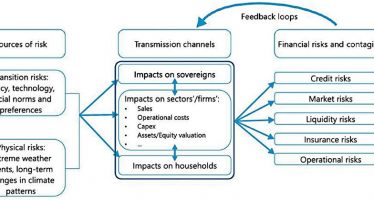Ginni Rometty: Steering a Behemoth onto the Cloud
 Considered the world’s most powerful woman in business in 2012, IBM Chairperson and CEO Ginni Rometty is steering her company to the cloud. Not one to set modest goals, Mrs Rometty wants IBM to reclaim its dominant position by identifying the next high-profit areas of computing and moving decisively into them. She is also looking to tap into yet underdeveloped markets by partnering with large local players.
Considered the world’s most powerful woman in business in 2012, IBM Chairperson and CEO Ginni Rometty is steering her company to the cloud. Not one to set modest goals, Mrs Rometty wants IBM to reclaim its dominant position by identifying the next high-profit areas of computing and moving decisively into them. She is also looking to tap into yet underdeveloped markets by partnering with large local players.
In China, IBM teamed up with Internet provider Tencent to develop and market cloud-based services to business customers. While not a household name in the West, Tencent provides Internet connectivity and value-added services to literally hundreds of millions customers. In the US, Mrs Rometty recently signed a deal with Twitter to help that platform expand into the corporate market. IBM is to provide Twitter with a suite of business apps that connect directly to the vast amount of consumer data gathered by the social network.
Though Mrs Rometty has not mentioned any numbers, she did indicate that the revamped company will see its revenues soar before long. For the past ten quarters, IBM has suffered shrinking revenue streams. Mrs Rometty is not only moving IBM onto the cloud, she is also shedding underperforming business units and “rebalancing” the workforce.
From a supplier of hardware, IBM is now in the process of becoming a company of creative ideas. Last year, it committed over $1bn to porting its peerless natural language analytics engine Watson to its Bluemix cloud services platform which is now in direct competition with similar offerings from Google and Microsoft. With Bluemix, IBM also managed to expand its partnership with German business software provider SAP which was actively being courted by Amazon.
“Her decision to largely get out of the hardware business was a particularly smart one as most large corporations – IBM’s premier market – are now renting IT infrastructure rather than buying it.”
Though Mrs Rometty expects cloud services to bring in at least $7bn by 2015, she has not entirely moved the company away from its hardware roots. IBM is set to launch a new family of superscalar multiprocessors developed in-house and designed specifically to power cloud servers. In a first, Mrs Rometty decided to make the Power8 processor’s design freely available under an open source license in an attempt to set a new standard. The company has also set aside $3bn to develop microchips that are not based on silicon.
A native from Chicago, Mrs Rometty graduated with high honours from Northwestern University’s School of Engineering and Applied Science in 1979. After obtaining a degree in computer science and electrical engineering, she briefly worked for the General Motors Institute before joining IBM in 1981 as a systems engineer.
Throughout her career at IBM, Mrs Rometty has worked to involve the company in business analytics and away from hardware. As such, she is seen as making amends for the wrong bet the company placed in the early 1980s when it handed the development of software for its then-revolutionary 8086 processor architecture to outside parties – first to Digital Research (now defunct) and then to start-up Microsoft, which took the bait.
While transforming IBM into a company of ideas, Mrs Rometty has continued the somewhat controversial share buyback programme she inherited from her predecessors, committing another $5bn to propping-up the stock in a clear sign that the company is not lacking in confidence when it comes to the future. Since the turn of the century, IBM has spent $108bn on buying back shares.
Mrs Rometty manages a company that stands at a crossroads. Her decision to largely get out of the hardware business was a particularly smart one as most large corporations – IBM’s premier market – are now renting IT infrastructure rather than buying it. Still, it will be quite a feat to reshape a company the size of IBM. With a revenue of close to $100bn annually, some 430,000 employees, and a market cap of almost $170bn, IBM is everything but nimble.
Others before her have tried – and failed – to change IBM’s corporate direction. However, with her bold and decisive moves, devoid of ambiguity, Mrs Rometty may very well succeed and thus reinvigorate one of the icons of US business.
You may have an interest in also reading…
Thanks for giving us Space, Juan
There were some very good reasons that the Industrial Revolution happened in Britain. Of course, natural resources were plentiful but
The Current Crypto Bear Market & The Future of Blockchain – Asset Backed Token (ABT) ICOs
The current crypto bear market is due much to the network value well exceeding the number of transactions at the
Otaviano Canuto on Central Banks and Climate Change: Turning Black Swans Into Green
There are three possible motivations for the engagement by central banks with climate change: financial risks, macro-economic impacts, and mitigation/adaptation



























































































